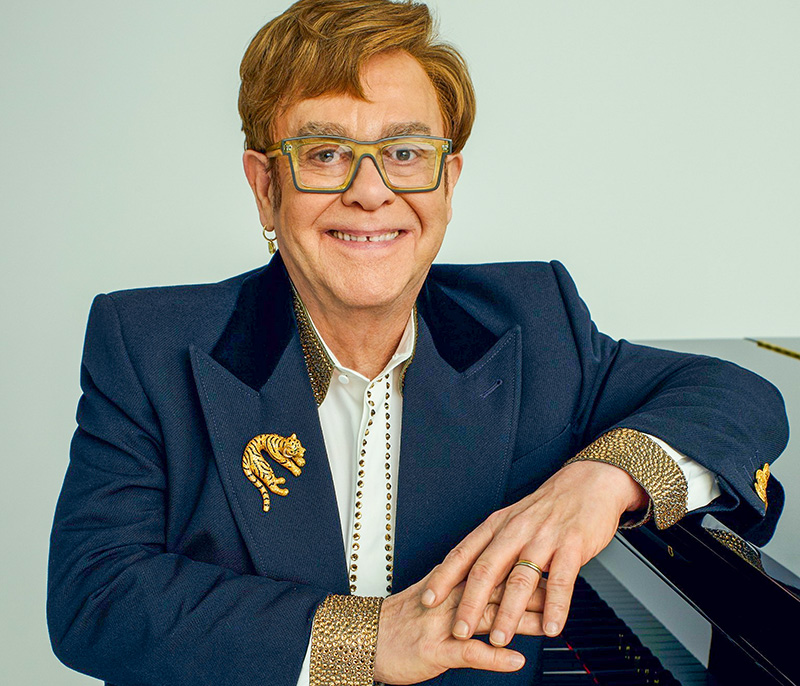Flashback: Top 10 Singles This Week 30 Years Ago – Jan. 1984
10. “Running With the Night” – Lionel Richie
At #10 thirty years ago this week, on the Billboard Hot 100 issued on January 14, 1984, was the second single from Lionel Richie’s biggest album “Can’t Slow Down,” “Running With The Night.” It was the follow-up to the #1 smash “All Night Long.” In fact, “All Night Long” was #11 this week on its way down the charts. Rihanna fans may recognize the keyboard riff in this track being sampled on “Push Up On Me.” “Running With the Night” would eventually peak at #7, and “Can’t Slow Down” would go on to win Album of the Year at the 1985 Grammy Awards.
9. “Karma Chameleon” – Culture Club
Culture Club entered the Top 10 this week for the 5th time in their career with a song that would eventually become their first and only #1. It was the second single from “Colour By Numbers,” following “Church of the Poison Mind.” “Karma Chameleon” ended up being the biggest hit of their career, their signature song, and one of the most iconic tracks of the decade.
8. “I Guess That’s Why They Call It The Blues” – Elton John
Elton John enjoyed a career renaissance with his album “Too Low For Zero.” It had already spawned two hits in “I’m Still Standing” and “Kiss The Bride.” “I Guess That’s Why They Call It The Blues” became the biggest hit from the album, reaching #4. It features a harmonica solo performed by Stevie Wonder.
7. “Break My Stride” – Matthew Wilder
Matthew Wilder is sometimes seen as a one-hit wonder, and that’s probabay a fair assessment given that the follow up single to “Break My Stride,” a track called “The Kid’s American,” would only reach #33, and that was his final Top 40 hit. He would, however, have a successful career as a songwriter and producer, working with such artists as No Doubt, Kelly Clarkson and Christina Aguilera. He also performed the singing for the character Ling in Walt Disney’s animated film Mulan. “Break My Stride” peaked at #5, and it’s one of the few big hits from this era so dependant upon MTV exposure that did not have a video.
6. “Talking in Your Sleep” – The Romantics
The biggest hit for The Romantics, a power-pop band out of Michigan, “Talking in Your Sleep” would eventually reach #3. The follow-up single from their album “In Heat” didn’t fare nearly as well — the excellent “One In a Million” stalled out at #37 and was their final Top 40 hit. The Romantics are well-known for their 1979 single “What I Like About You,” which only peaked at #49 but has since become a power-pop classic.
5. “Twist of Fate” – Olivia Newton-John
The upbeat synth-pop track “Twist of Fate” was recorded for the film Two of a Kind, a commercial dud co-starring John Travolta. Despite the film’s failure, “Twist of Fate” did quite well and peaked at #5 — the final Top 10 hit for Oliva Newton-John.
4. “Union of the Snake” – Duran Duran
The first single from Duran Duran’s third album “Seven and the Ragged Tiger,” “Union of the Snake” became the band’s third Top 10 hit, reaching #3. Two more Top 10’s would follow from the album: “New Moon on Monday” (which debuted at #58 this week on its way up the chart), and “The Reflex” which would become their first #1 single in America.
3. “Say It Isn’t So” – Daryl Hall & John Oates
Hall & Oates earned their 12th Top 10 hit with “Say It Isn’t So,” one of two new tracks recorded for their compilation album “Rock and Soul, Part 1” (along with “Adult Education, which would reach #8 in the spring of ’84). “Say It Isn’t So” peaked at #2.
2. “Owner of a Lonely Heart” – Yes
Pausing at #2 on its way to the top, “Owner of a Lonely Heart” was by far the most successful single in the long and legendary career of progressive rock pioneers Yes. It was far more commercial than any of their previous work and was controversial with long-time fans who didn’t appreciate the new direction. It was the first single from the band’s album “90125,” which reached #5 on the Billboard Top 200 album chart. MTV featured the video heavily, introducing the band to a new generation of fans. The follow-up single, “Leave It,” peaked at #24 and was the only other Top 40 hit from the album.
1. “Say Say Say” – Paul McCartney and Michael Jackson
From Paul McCartney’s “Pipes of Peace” album, his duet with Michael Jackson “Say Say Say” features an elaborate and comical video in which Paul and Michael play travelling con artists selling the “Mac and Jack Wonder Potion.” This was the second hit duet for the pair following “The Girl is Mine,” a #2 single from Jackson’s “Thriller” album in 1982. “Say Say Say” would end up being the final #1 single of Paul McCartney’s career. Another highly comercial duet with Jackson, a track called “The Man,” was also on the “Pipes of Peace” album but Jackson’s record label declined to give permission for it to be released as a single, so a potential smash was left as an album track. Instead the ballad “So Bad” was released as the follow-up and only reached #23, and the “Pipes of Peace” album was ultimately something of a commercial disappointment. “Say Say Say” spent 6 weeks at #1, becoming one of the biggest hits of the year. It was finally dislodged by “Owner of Lonely Heart.”
Other recent articles:
Happy Birthday David Bowie! – Ranking his albums worst to first
Support Metro Weekly’s Journalism
These are challenging times for news organizations. And yet it’s crucial we stay active and provide vital resources and information to both our local readers and the world. So won’t you please take a moment and consider supporting Metro Weekly with a membership? For as little as $5 a month, you can help ensure Metro Weekly magazine and MetroWeekly.com remain free, viable resources as we provide the best, most diverse, culturally-resonant LGBTQ coverage in both the D.C. region and around the world. Memberships come with exclusive perks and discounts, your own personal digital delivery of each week’s magazine (and an archive), access to our Member's Lounge when it launches this fall, and exclusive members-only items like Metro Weekly Membership Mugs and Tote Bags! Check out all our membership levels here and please join us today!





















